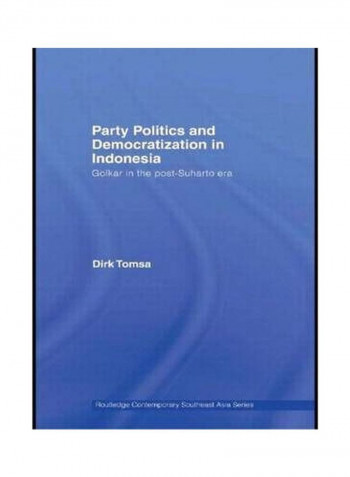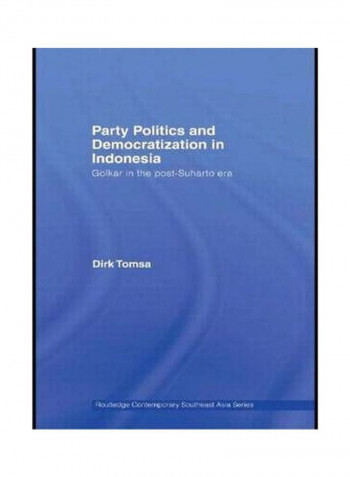Party Politics And Democratization In Indonesia: Golkar In The Post-Suharto Era Hardcover
Recommend
Sort by
Rating
Date
Specifications
Grade
New
Author 1
Dirk Tomsa
Book Description
Party Politics and Democratization in Indonesia: Golkar in the Post-Suharto Era provides the first in-depth analysis of contemporary Indonesian party politics and the first systematic explanation why Golkar is still the strongest party in Indonesia. Applying a multi-dimensional conceptual framework of party institutionalization theory, the book examines Golkar's organizational infrastructure, its decisional autonomy and programmatic platform as well as the party's relations to the mass media. Strengths and weaknesses in the individual dimensions of institutionalization are then contrasted with the corresponding levels of institutionalization reached by Indonesia's other major parties. Tomsa argues that Golkar remains Indonesia's strongest party because it is better institutionalized than its electoral competitors. However, while highlighting the former regime party's strengths in key aspects of party institutionalization, he also shows that Golkar also has some considerable institutional weaknesses which in 2004 prevented the party from achieving an even better result in the general election As an empirical study on Golkar, and Indonesia's other major political parties, this book will be of huge interest to students and scholars of Southeast Asian politics, political parties and elections and democratization.
ISBN-13
9780415460088
Language
English
Publisher
Taylor & Francis Ltd
Publication Date
15 Sep 2008
Number of Pages
288
About the Author
Dirk Tomsa is an Associate lecturer at the University of Tasmania, Australia. He holds a joint appointment in the School of Asian Languages and Studies and the School of Government.
Editorial Review
This book is a meticulous endeavor by Dirk Tomsa to explain how GOLKAR has managed to survive and even thrive in a free and fair electoral democracy.' - Benny Subianto, Contemporary Southeast Asia, April 2009 "Recommended. Graduate, research, and professional collections." - CHOICE, May 2009 Vol. 46 No. 09 "For academics and students alike, this is an important and indepth contribution to the increasingly influential literature on party institutionalization. It gives the reader a fine-grained account of the complex dynamics at play both within and between political parties in Indonesia. The key statistical matrix in the conclusion also makes for a useful quick referent...Overall, Tomsa provides us with an orderly and empirically accurate basis to generate discussion on the dynamics of Indonesia's post-authoritarian settlement and highlights the need for dialogue with proponents of social conflict theory." - Paul J. Carnegie, Pacific Affairs: Volume 83, No. 1 - March 2010




